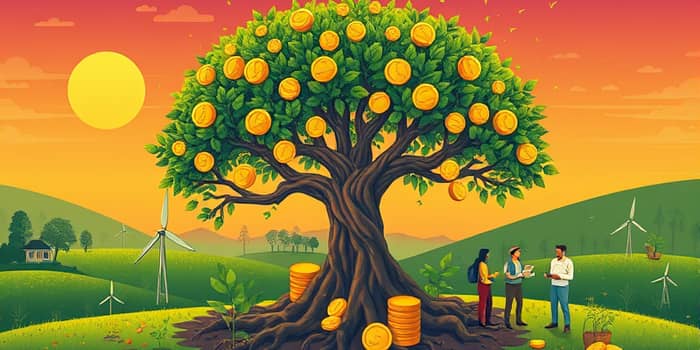
In today’s world, the definition of success is evolving beyond financial accumulation toward lasting impact. Wealth is not just numbers in an account but a force that shapes communities and the planet.
The concept of legacy has expanded. It now includes the values we uphold, the environment we preserve, and the society we strengthen. Rather than leaving only assets, modern investors aim to leave meaningful benefits for future generations.
Traditional approaches—budgeting, saving, asset building—remain foundational. But they are now complemented by conscious frameworks such as ESG integration, impact measurement, and social entrepreneurship.
Sustainable investing has moved from niche to mainstream. Globally, assets under management in sustainable strategies have reached $30 trillion and counting. Projections estimate growth to over $40 trillion by 2028.
In the United States alone, sustainable investments totaled $6.5 trillion at the start of 2024, representing 12% of all professionally managed assets. Q4 of 2024 saw $16 billion in net inflows into sustainable funds, up from $9.2 billion the prior quarter.
Investor preferences mirror this momentum: 84% of U.S. investors and 77% globally express strong interest in sustainable portfolios. Among Millennials and Gen Z, that figure rises to 85%. Nearly 80% believe they can achieve competitive returns while creating positive impact.
Building wealth with a conscience involves deliberate planning and diverse income streams. By combining financial discipline with ethical criteria, investors strengthen resilience and purpose.
Real estate can also spearhead positive change. Green buildings with energy-efficient designs lower operating costs and reduce carbon footprints. Renewable energy installations and community-focused developments add both social and financial value.
Traditional metrics like ROI are no longer enough. Investors now demand integrated performance and impact reporting. Frameworks include:
New metrics such as Social Return on Investment (SROI) and ROIC adjusted for ESG factors enable investors to quantify benefits like reduced emissions, improved labor conditions, and community development.
With growth comes scrutiny. Greenwashing—marketing without substantive action—remains a concern. Investors must rigorously assess fund disclosures, third-party certifications, and company commitments to avoid superficial claims.
Balancing profit and purpose can present trade-offs. High-impact projects may have longer payback periods or lower initial yields. Yet prioritizing long-term resilience often uncovers hidden value and stability.
Equitable access to wealth-building opportunities is paramount. Financial literacy programs and community investment vehicles can broaden participation, ensuring that the benefits of sustainable growth reach diverse populations.
Embarking on a conscious wealth-building path requires clarity, commitment, and continuous learning. Consider the following roadmap:
By setting clear milestones and embracing transparency, you can track both financial growth and positive impact, refining strategies as markets and priorities evolve.
Building a legacy with conscience is not a passive endeavor. It demands intentional actions, ongoing vigilance, and collaboration across sectors. Yet the rewards extend far beyond personal wealth: healthier ecosystems, stronger communities, and empowered future generations.
Today’s decisions shape tomorrow’s world. As you align your portfolio with your principles, you become part of a growing movement that proves ethics and prosperity can—and must—go hand in hand.
Your journey to sustainable legacy building begins now. Plan wisely, invest conscientiously, and watch your impact—and wealth—flourish for decades to come.
References





